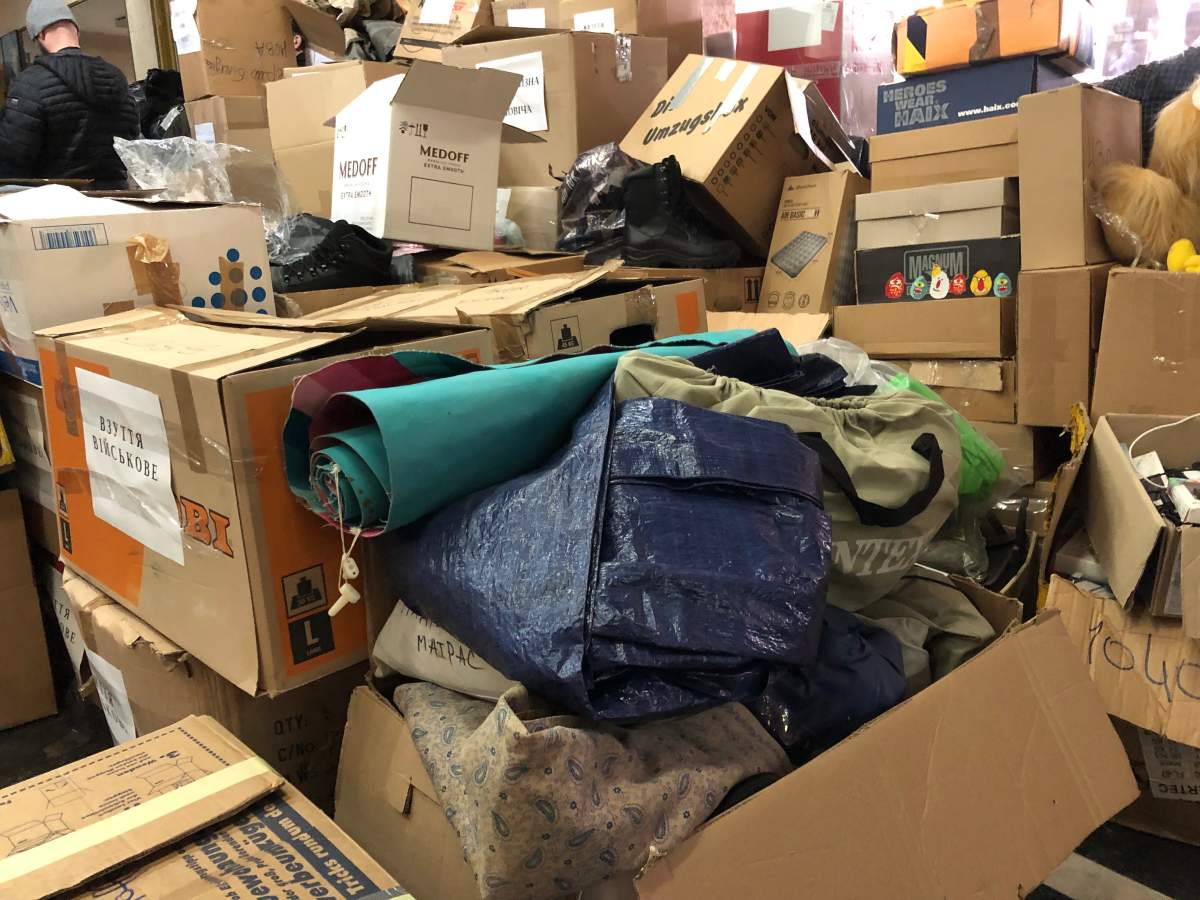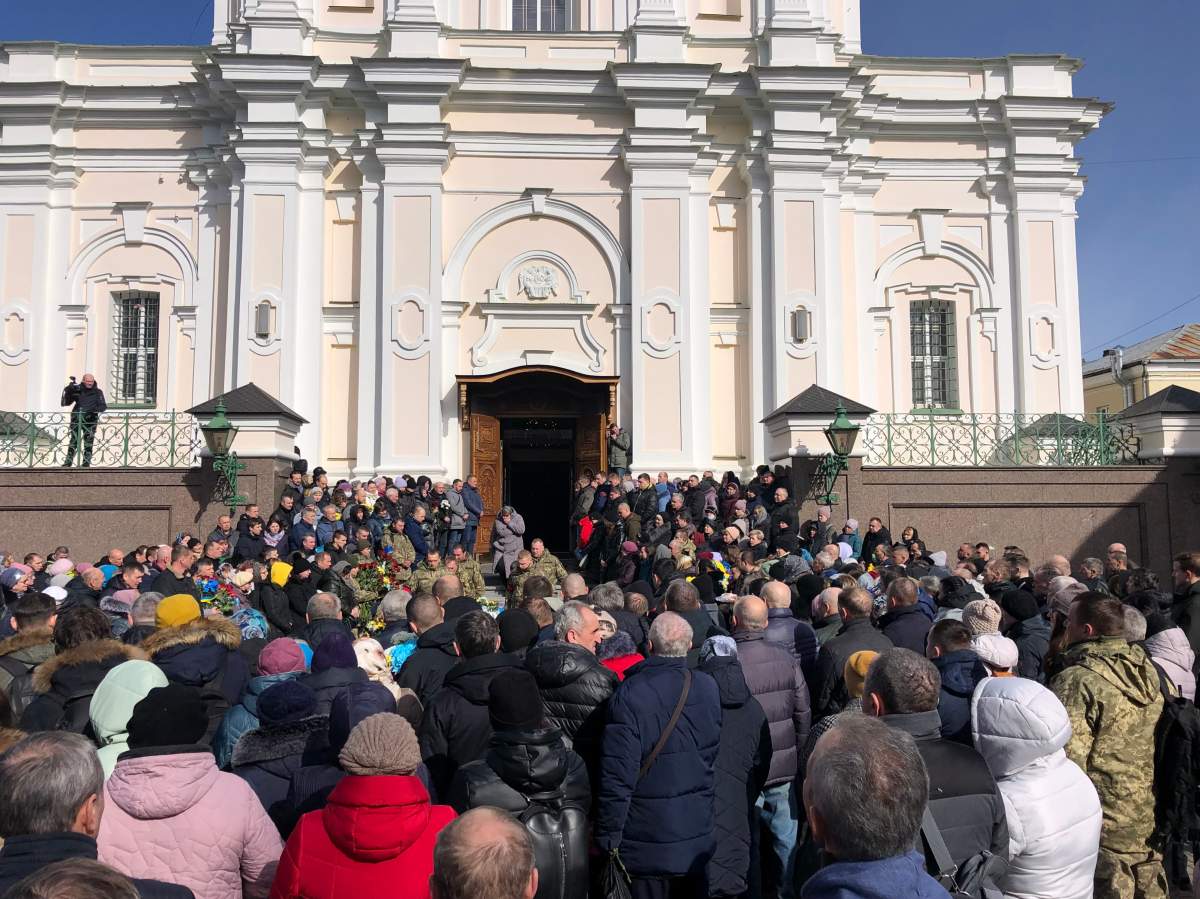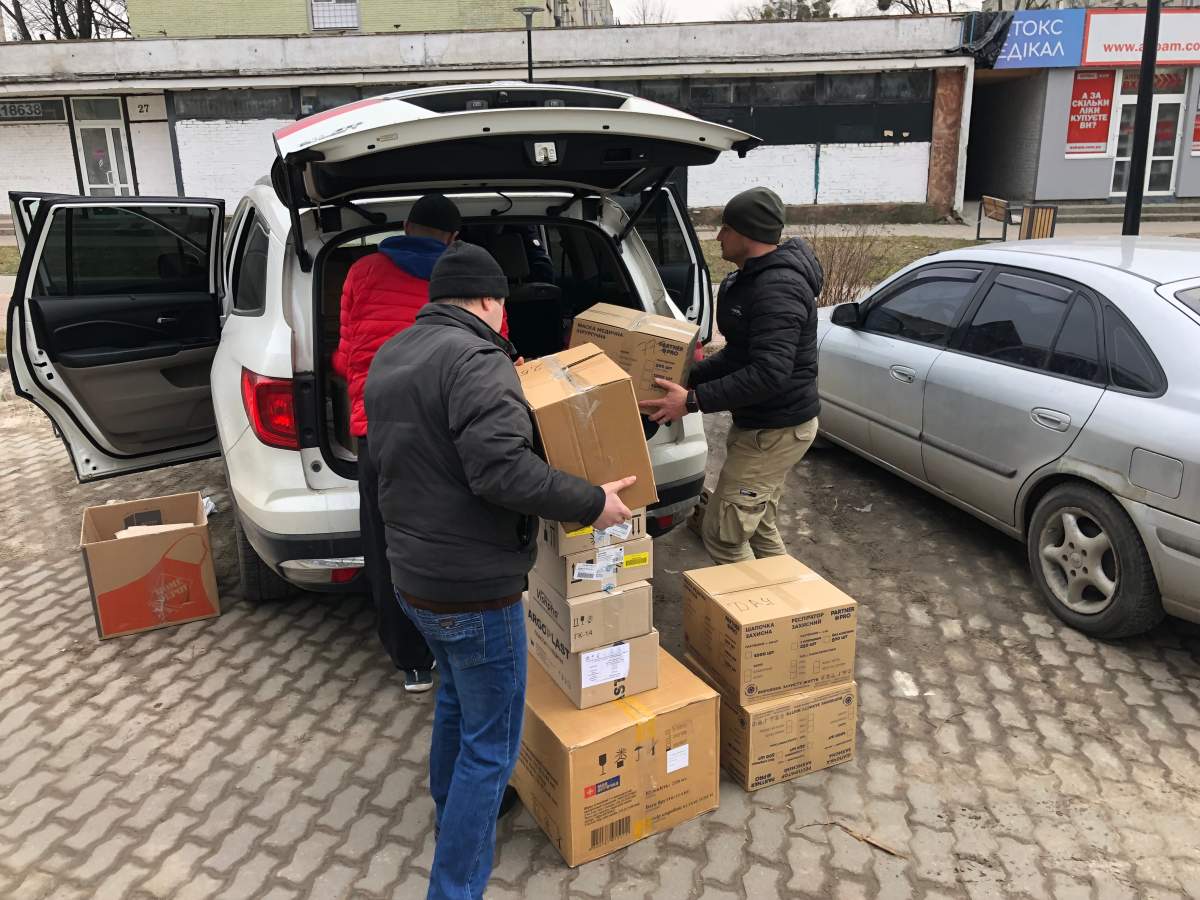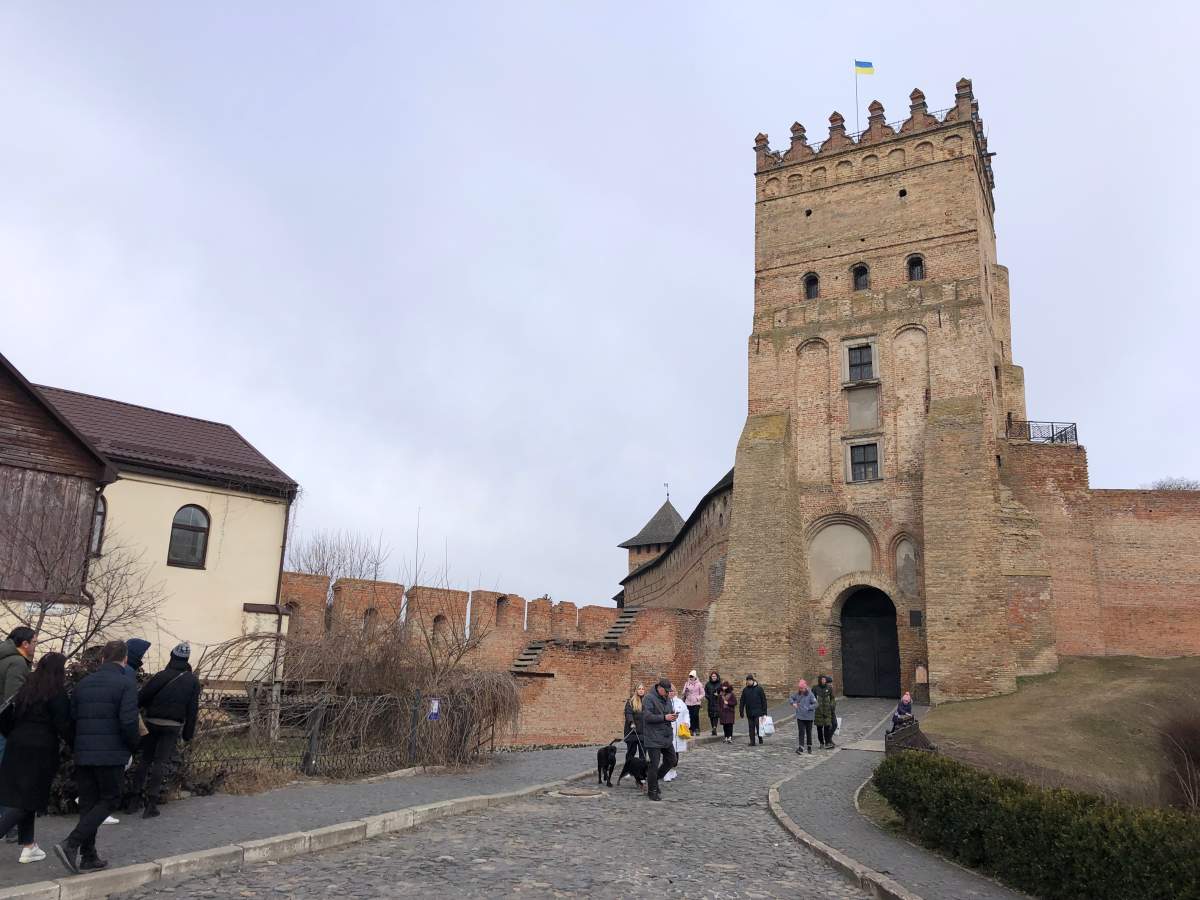The day after Russian missiles struck Lutsk, dozens of volunteers were back at work at a secret location in the western Ukraine city, packing supplies into boxes and loading them into vans.

In a building so full of boxes it could pass for an Amazon warehouse, they stuffed pain killers, bandages, rubbing alcohol and stomach pills into first-aid kits for the soldiers fighting Russia.
They sorted through loaves of bread, jars of jams and varenyky made by locals determined to keep the soldiers fed. They stacked up boots, socks and gloves to help the troops fend off the late-winter cold.
Largely comprised of women, the group’s task was to take the contributions coming in from Ukrainians as well as supporters around the world and organize them for distribution to the front lines of the conflict.
“Putin you are an a–hole, but you have managed to bring Ukraine together,” said Larisa, who runs the facility and did not want her surname published for fear she would be targeted.
Russia’s attempt to seize its western neighbour has triggered Europe’s worst refugee crisis since the Second World War, but it has also led to a mass mobilization of citizens unseen since then.
While NATO countries have been shipping anti-tank weapons and air defence systems to Ukraine, a far more expansive effort has been underway within the country to run supplies to soldiers and civilians under Russian attack.
Based in western Ukraine, which has the advantage of proximity to European borders, and where Russian attacks have been limited to airstrikes, the network is run by an army of volunteers.
In many western cities, public buildings and businesses have been converted into warehouses that collect, sort, re-package and transport donations coming in from Ukraine and abroad.
Outside the centre in Lutsk, which Global News was allowed to visit on the condition its location was not disclosed, a half-dozen donated delivery vehicles were parked and ready.

A line of men stretched from the building’s main entrance to a van with its rear doors open. Passing boxes along a human chain, they loaded the vehicle with provisions.

Get daily National news
“When we have fear, we need to start working,” Andriy Sadovyi, the mayor of Lviv, a hub of supply efforts, told reporters at a news conference at a bar converted into a media centre.
Russian forces have stepped up missile attacks in west Ukraine over the past week, striking airfields, a TV tower and a training centre for international army volunteers.
The worst attack was in Yavoriv, where eight missiles hit a military base just 20 kilometres from the Polish border early Sunday, killing at least 35 people and injuring 134.
Two days before that, the airport at Lutsk was bombed, killing soldiers Vadim Hryniuk and Ivan Koshil, whose bodies were carried into the central church barely 24 hours later.
“We are giving our best sons to the front line,” the priest said at the service, as incense clouds drifted over the mourners gathered around the caskets. “We must defend the motherland.
“We don’t want to be slaves again.”
But if Russia has missiles, Ukraine has something Moscow lacks: an endless supply of committed volunteers working to meet the day-to-day needs of their countrymen in the line of fire.
While the Russian forces have reportedly struggled with supply problems, having wrongly believed they would capture Kyiv in days, Ukrainians have rallied to provide for their own.
“My mom, she’s at home and she’s making pierogies for the soldiers. My sister, she’s doing a net to cover the army equipment,” said Roman Yosyfiv, a Ukrainian-Canadian living in Lviv.
A Calgarian, Yosyfiv was preparing to return to Canada after a year in the country where he was born when the war started and he decided to extend his stay and see what he could do to help.
On Facebook, he posted a message asking for donations. He said he would take any money he collected to a pharmacy and buy medical supplies for those suffering as a result of the Russian invasion.
When friends and co-workers in Alberta stepped up, he began compiling shopping lists for hospitals, some of which posted their needs on social media. He ordered the medicines from local pharmacies.
He and some friends then put the boxes onto trains or into vehicles heading to cities in the east. Someone meets the deliveries on the other end, he said. To date, he has raised almost $25,000.
“If I’m here, why not, why not to help?” he said.
After picking up a load of medicines at a Lviv pharmacy, and loading them into a vehicle for delivery to Kharkiv, he paused to reflect on the shipment.
“Look at those boxes, you know.,” he said. “Tomorrow it’s going to be in a hospital and somebody’s going to use it.”
He said the spirit of Ukrainians was formidable, and he was confident better days were ahead.
“If the people keep that spirit they have right now, they’re going to rebuild this country, with the support of course from the West. And I guarantee this country’s going to be different,” he said.
“Because those guys, they fight for freedom on their land. They didn’t go to Russia to fight there. They protect their land. And they don’t have anywhere else to go.”
Two hours northeast of Lviv, Lutsk is a small city on the Styr River with an auto plant built by the Soviets and a 14th-century castle that has withstood waves of attacks.
Ilona Barbulov, a volunteer at the centre supporting the war effort, said she heard the air raid sirens at 5:45 a.m. on Friday, and then she heard planes and three explosions that turned the sky red and rattled her windows.
“The question is why?”
One of the dead was only 27, which felt starkly close to her own age, 29.
“Can you imagine, people that young,” said Barbulov, a physical education teacher and gymnastics coach.
But at the centre, there were things that buoyed her, like seeing elderly women arriving each day to drop off food they had prepared for the soldiers, lest they go hungry defending Ukraine.
“And that’s more than heartbreaking,” she said.
Stewart.Bell@globalnews.ca












Comments
Want to discuss? Please read our Commenting Policy first.